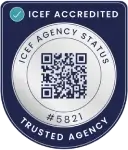Obtaining a Master’s degree abroad is a dream for many students, but the financial aspect can be a significant barrier. Fortunately, there are numerous scholarships available for students pursuing their Master’s degree abroad. In this detailed guide, we will explore the different types of scholarships, eligibility criteria, application processes, and tips for a successful application.
Types of Scholarships:
- Merit-Based Scholarships: These scholarships are awarded based on academic achievement, such as GPA, standardized test scores, or academic accomplishments. They are highly competitive and are often offered by universities themselves.
- Need-Based Scholarships: These scholarships are awarded to students who demonstrate financial need. Eligibility is determined by the applicant’s or their family’s financial situation.
- Subject-Specific Scholarships: These scholarships are awarded to students pursuing specific fields of study. They may be offered by universities, government agencies, or private organizations. For instance, there are scholarships for STEM (Science, Technology, Engineering, and Mathematics) fields, social sciences, arts, and more.
- Country-Specific Scholarships: Many countries offer scholarships to international students, such as the Fulbright Program in the United States, the Chevening Scholarships in the United Kingdom, and the DAAD Scholarships in Germany. These programs aim to foster international cooperation and cultural exchange.
- University-Specific Scholarships: Most universities around the world have their own scholarship programs. These scholarships can be based on merit, need, or a combination of both. It’s important to research individual universities to identify potential opportunities.
- Government Scholarships: Many governments have scholarship programs for international students, particularly for those from developing countries. These scholarships can cover tuition, living expenses, and more.
- Private Scholarships: Various private organizations and foundations offer scholarships to international students. These may be industry-specific, community-based, or have unique eligibility criteria.
Eligibility Criteria:
Scholarship eligibility criteria can vary widely depending on the type of scholarship and the institution or organization offering it. However, there are common factors that scholarship providers consider:
- Academic Excellence: Most scholarships, especially merit-based ones, require a strong academic record. This includes high GPA, test scores (e. g., GRE, TOEFL, IELTS), and outstanding academic achievements.
- Admission to a Master’s Program: Typically, you must be admitted to a Master’s program at a recognized institution before applying for scholarships. Some scholarships may require a conditional offer of admission.
- Language Proficiency: If you are applying to a program in a non-native English-speaking country, you may need to demonstrate proficiency in the language of instruction through tests like TOEFL or IELTS.
- Recommendation Letters: Many scholarships require letters of recommendation from professors or professionals who can vouch for your capabilities and potential.
- Statement of Purpose: A well-crafted statement of purpose outlining your academic and career goals is often a required part of scholarship applications. This is your opportunity to showcase your passion and motivation.
- Financial Need: For need-based scholarships, you may need to provide detailed financial information to prove your need for financial assistance.
- Extracurricular Activities: Some scholarships take into account your involvement in community service, leadership roles, or other extracurricular activities.
- Country of Origin: Some scholarships are specifically designed for students from certain countries or regions. This can provide opportunities for underrepresented areas.
Application Process:
- Research: Start your scholarship search well in advance. Identify scholarships that match your profile and academic goals. Research the specific requirements, deadlines, and application procedures for each scholarship.
- Prepare Required Documents: Gather all necessary documents, including transcripts, test scores, recommendation letters, and a well-crafted statement of purpose. Ensure that these documents are up-to-date and tailored to the scholarship’s requirements.
- Identify Key Deadlines: Be aware of application deadlines, and aim to submit your applications well in advance. Missing deadlines can disqualify you from consideration.
- Complete Application Forms: Fill out the application forms carefully and thoroughly. Pay attention to the specific questions and requirements of each scholarship.
- Proofread and Review: Double-check all your documents for errors or inconsistencies. A well-presented application reflects your attention to detail and professionalism.
- Submit Your Applications: Follow the submission instructions precisely. Some scholarships require online submissions, while others may request physical applications. Ensure that you receive confirmation of submission.
- Follow-up: After submitting your applications, keep track of your progress. Some scholarships may require additional information or interviews, so monitor your email and be responsive to any requests.
- Prepare for Interviews: If your scholarship application leads to an interview, prepare by researching the scholarship provider and practising your interview skills.
Tips for Success:
- Start Early: Begin your scholarship search and application process well in advance, as it can be time-consuming and competitive.
- Diversify Your Applications: Apply to a variety of scholarships to increase your chances of success. Don’t put all your hopes on a single scholarship.
- Tailor Your Applications: Customize your applications for each scholarship. Highlight relevant achievements and align your goals with the scholarship’s mission.
- Seek Guidance: Reach out to university advisors, professors, or alums who have experience with scholarship applications. They can provide valuable insights and advice.
- Stay Organized: Keep track of application deadlines, requirements, and communication with scholarship providers. Create a system to ensure you don’t miss any critical information.
- Consider Alternatives: If you do not secure a scholarship, explore other funding options, such as part-time work, assistantships, or loans.
- Persist and Be Resilient: Rejection is a part of the scholarship application process. If you are not successful initially, don’t lose hope. Learn from your experiences and continue to pursue your goals.
In conclusion, scholarships for Master’s degrees abroad are a valuable resource for international students looking to further their education. They come in various forms and have different eligibility criteria, but with careful research, preparation, and determination, you can increase your chances of obtaining the financial support you need to pursue your dreams of studying abroad. Remember that the application process can be competitive, so it’s essential to start early, stay organized, and be persistent in your pursuit of scholarship opportunities.





